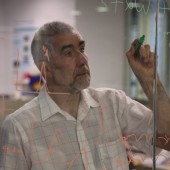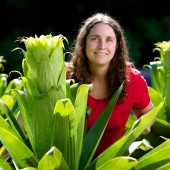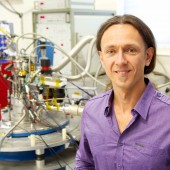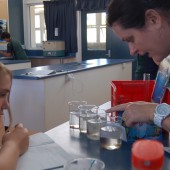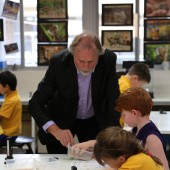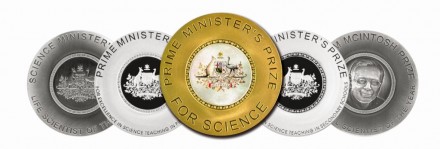Thank you to Simon Chester for preparing this piece.
The Unsung Hero of Science Communication award is offered annually by the Australian Science Communicators (ASC), and recognises and celebrates excellence in science communication across Australia.
Science communication is the process of making science accessible, and encouraging engagement with scientific processes and outcomes. This engagement allows people to make better-informed decisions about some of the most critical issues facing society and the planet.
Science communication can come from many sources, including scientists, teachers, journalists, writers, entertainers, students, and other communicators including, most noticeably, radio and TV personalities.
One of the members of the judging panel from last year’s award, former ASC President and Eureka Awards Science Book Prize winner, David Ellyard, recognises the importance of communicating science out to the public, but that science communication isn’t just about the top-level celebrities.
“Science communication is at the heart of the scientific enterprise,” said David. “The everyday people who pay for science to be done, and who will be impacted by scientific discoveries, are entitled to know what is going on. And they will commonly find it fascinating.
“Science communication goes on at many levels, from high profile journalism, conferences, and TV documentaries to informal person to person chats,” said David. “The high-fliers get a lot of kudos, but those who work productively in other dimensions are also worthy of acknowledgment.”
The ASC has traditionally acknowledged unsung Australian scientists, but, last year, felt that it was past time to shine the spotlight onto those who communicate the science – especially as the scope of the award is not covered in existing national science award programs. Thus, in 2012, the Unsung Hero of Science Communication award was born.
“The ASC created this award to honour a person or group who exemplify science communication, who have not yet received significant recognition for their contribution to science and its promotion, and for work done in Australia over a considerable or prolonged time” said Jesse Shore.
In 2012, that person was editor and publisher of the magazine Australasian Science, Guy Nolch.
According to the judges, Guy Nolch was recognised for: his long period of distinguished science publishing (more than 20 years publishing Australasian Science); training and mentoring science communicators; making scientists’ work accessible to and understood by the public; dealing with controversial issues; his major contributions to the discussion of science policy and scientific issues in Australia; and for the fostering of good science journalism in Australia and for promotion of leading Australian scientists and their research.
As a publisher of a long-standing science magazine, Guy sees targeted publications as becoming ever more important as tools for quality science communication.
“The mainstream media has a greater reliance on syndicated stories these days, and pitch their stories at the centre of the demographic bell curve,” said Guy. “Niche publications like Australasian Science can focus more on local research and researchers, and provide more in-depth analysis of a broader range of research and its potential consequences.
“Newspapers have let science reporters go and the most noise is made by shock jocks with a particular entrenched view that is based more on the proprietor’s objectives than true objectivity. There are good writers out there, but, on the whole, they’re under pressure to file something short on a sexy topic before the rest of the pack run with it.”
But hope is not lost, as technology has turned any writer into a potential publisher, and budding communicators are now able to perfect their skills on their own blogs. Guy had this advice to offer to anyone interested in communicating science:
“In many ways it’s easier these days to get a portfolio of work together by self-publishing online in blogs, podcasts, and social media. Many niche magazines like Australasian Science will also welcome you to pitch story ideas. Check out the contributors’ guidelines so you can tailor your idea to the audience you’ll be reaching, and have a crack!”
The Unsung Hero of Australian Science Communication 2013 award will be presented during the Australian Science Communicators National Conference, held from 2-5 February 2014 at the Brisbane Convention and Exhibition Centre.
The 2014 ASC Conference also marks the 20th anniversary of ASC, so come join delegates from agencies like CSIRO, ANSTO, ATSE, Cooperative Research Centres, NHMRC, museums, universities, research institutes, and privately-run technology companies, as they celebrate the anniversary, learn about innovative practice and new initiatives, and hear from national leaders across research/technology, communication, media, business, industry and education.

